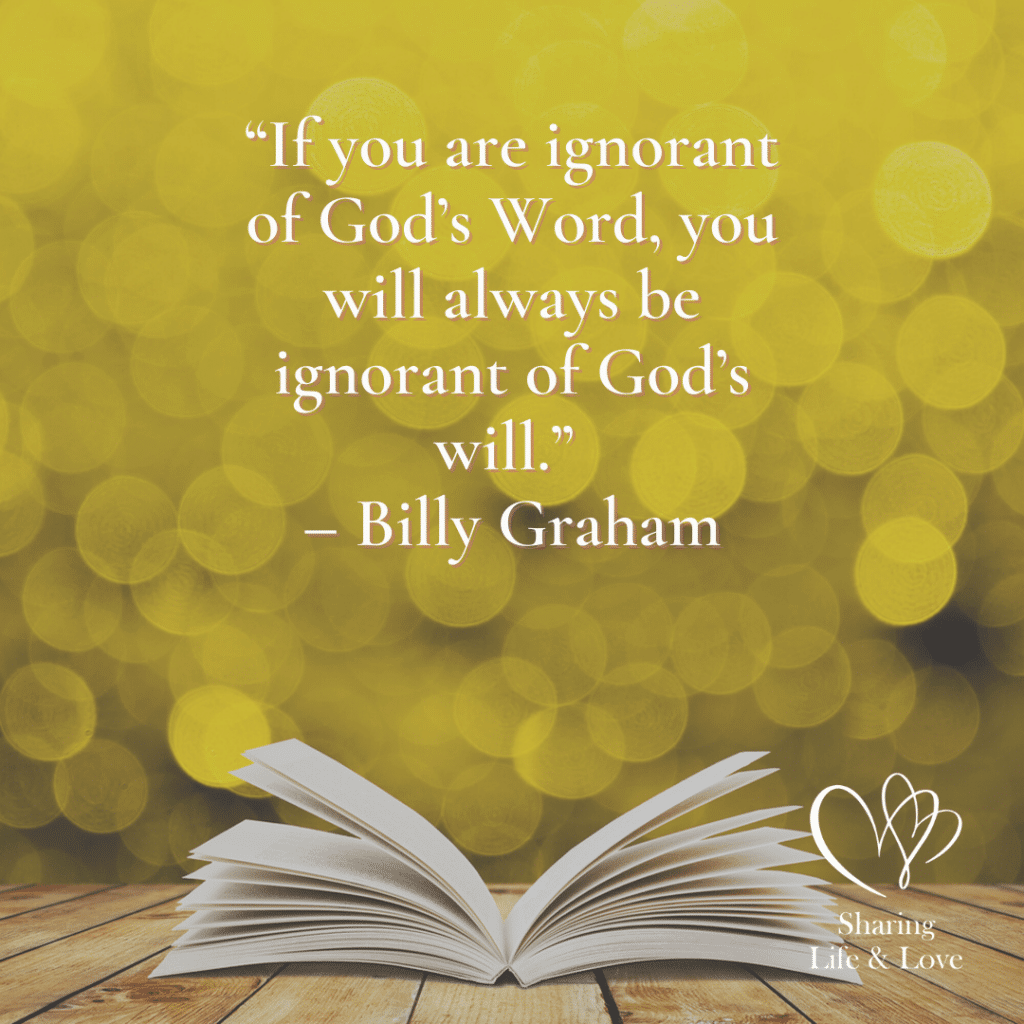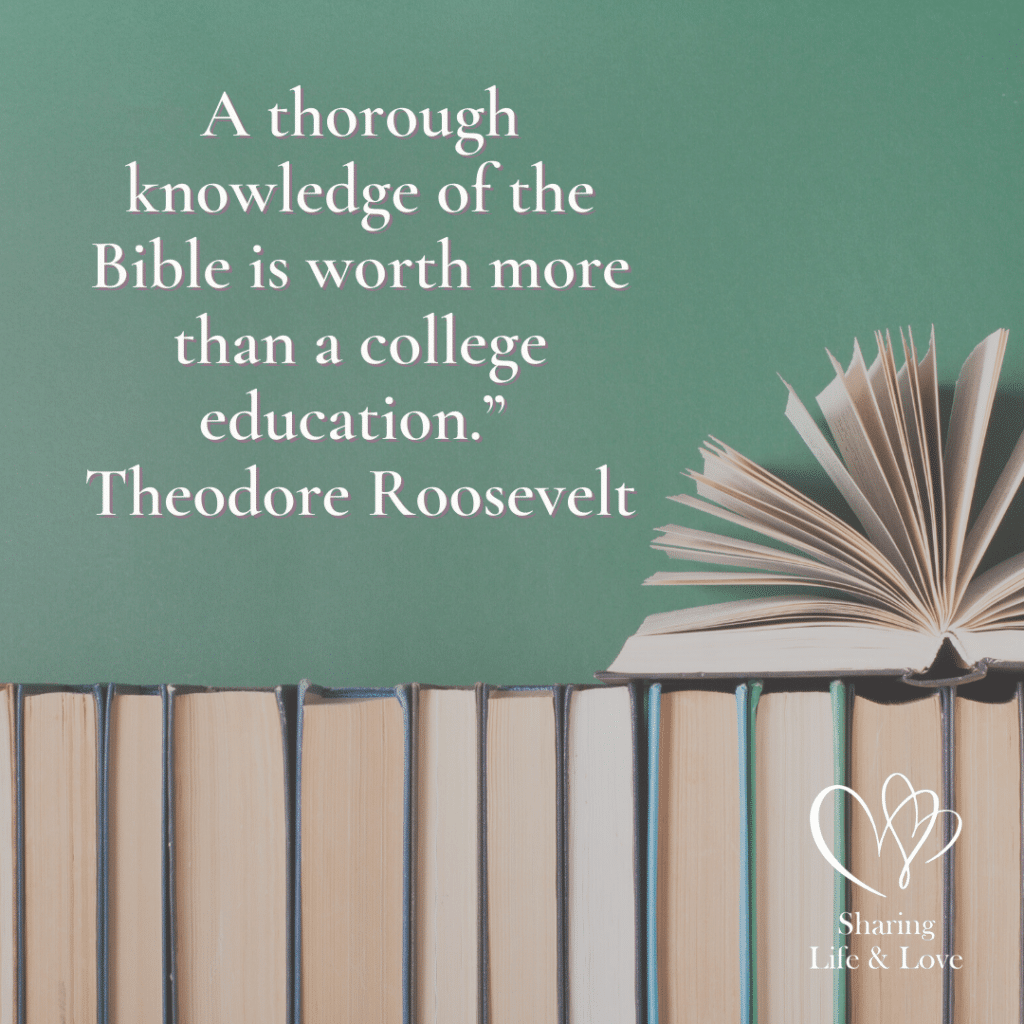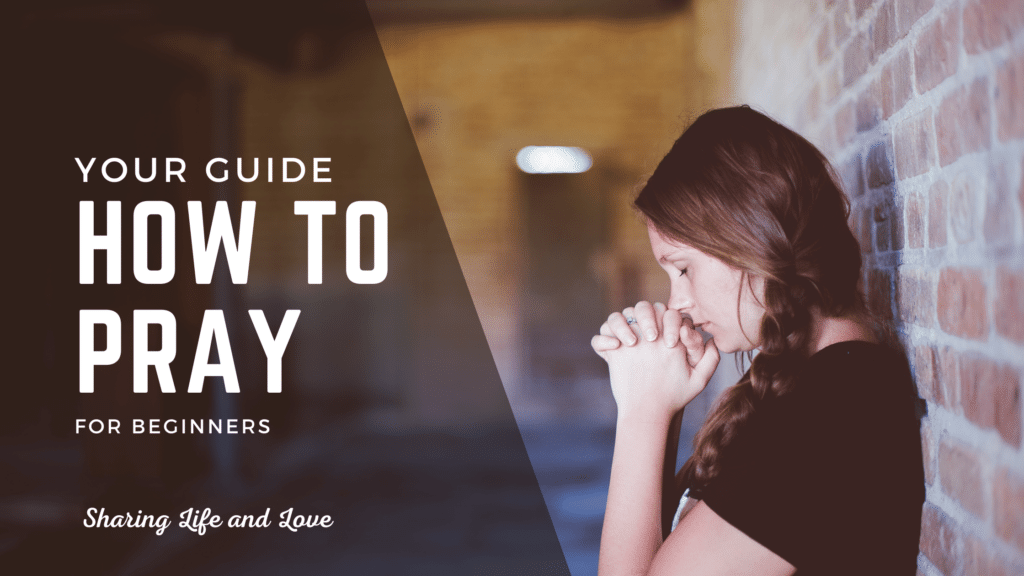So, you’ve been invited to a Bible study. Now what? What is a Bible study, and why should you go? What are the benefits of a Bible study?
It can be overwhelming and a little frightening to go to a Bible study for the first time, especially if it’s in a group. You may not know anyone and not know what to expect. I’ve been there; I feel your pain and discomfort. However, the rewards you get for going to a Bible study far outweigh the nervous feeling you may have in the pit of your stomach.
That is, of course, speaking about a group Bible study. A personal Bible study can be confusing and a little frustrating, as well, if you don’t know where to start. Don’t get intimidated and fear the Bible. Building a relationship with God (one of the perks of a personal Bible study) is completely worth the work!
In this article, we’ll cover what you need to know about both group and personal Bible studies. My hope is simple – that by the end of this article, you will be pumped up and eager to learn about the Bible, soaking in as much knowledge and truth as possible!
What Is A Bible Study?
A Bible study is a time set aside to strive to understand the words of the Bible. A Bible study is also known as “a Bible Devotional” or “Bible Devo.” Christians and those who wish to learn more about Jesus Christ participate in Bible studies to learn more about God and the words He spoke in the Bible. There are group and personal Bible studies.
A Bible study is an analysis of the most popular book in the world – the Bible. However, what a Bible study means to one person may not be the same to another. Often, what a Bible study is will depend on the intent of the reader or student. We often find what we are or are not looking for based on the intent we have in reading and studying the Bible.
For example, if your intent is to prove the Bible wrong, there is plenty of evidence you could use to try to support that theory. On the other hand, if you were looking for facts to support the proof that the Bible is full of facts, there are numerous resources out there that will support the fact that the Bible is true. Many of the facts of the Bible can be verified with history!
Fun fact: The longest name in the Bible is found in Isaiah 8:1 – Mahershalalhashbaz!
The Importance Of A Bible Study
A Personal Bible Study
Bible study should be a critical part of your daily living as a Christian because it’s a time when you are in complete devotion to the word of God. As you immerse yourself in the scriptures, you will gain further wisdom and understanding of the words of the Bible.
It does take time to learn everything the Bible has to offer. In fact, most Christians would admit they still do not know everything about the Bible – regardless of how many hours they have spent reading and studying it. So, if you are new to studying the Biel, you aren’t alone.
A Group Bible Study
If you gather with a group of people to study the Bible, you are participating in what many people would call a group Bible study. Being in a group Bible study gives you a chance to connect to other like-minded Christians or new believers.
God wants us to surround ourselves with positive Christian influences so that we can better learn how to live a Christian life. Plus, what better place to make Christian friends than a Bible study?
In a group Bible study, the founders are simply more like leaders rather than teachers. They encourage the interpretation of the Bible from the community of people in the study.
The leader may even have a lesson with questions ready for the group. Having fellowship in your Bible study can be very beneficial as you grow Christian bonds that last a lifetime.
For where two or three gather in my name, there am I with them. – Matthew 18:20
The Benefits of Bible Study
There are numerous benefits of going to or doing a Bible study. Here’s a short list.
- The more you read the Bible, the easier it gets to understand it.
- Studying the Bible aids in your Spiritual growth.
- You get to learn more about God, Jesus, your salvation, and so much more!
- You’ll gain knowledge that you can share with others.
- It gives you a chance to hear the words of God (listen).
Bible Study Vs. Bible Reading
Bible study and Bible reading are often confused with one another because they go hand in hand. Both are critical as you improve your walk with God because both allow you to grow as a Christian.

What’s the Difference?
A Bible study consists of an analysis of the book of the Bible. When you go to a Bible study or do your own Bible study at home, you are really cracking down on the words of God. Of course, reading the Bible is part of any Bible study. You can’t study the Bible if you don’t read it or listen to it.
Fun Fact: The Bible can be read aloud in about 70 hours!
What Is Bible Reading?
You can read the Bible without studying it since a comprehensive Bible study is not always required. You may just have the desire to reflect on a few verses of a passage you’ve read but not go into an in-depth study of the scripture. To grow in your faith, you need to read the Bible daily as part of your time with God during a devotional or quiet time.
Tips for Your Time with God
Incorporate Prayer
As you read or study the Bible, it’s recommended that you pray at the same time. Ask God to open your heart and mind to the words He wants you to imprint on you. Allow God to renew your spirit, strengthen your faith, and speak to your mind. Prayer can improve your life by giving you hope, purpose, and understanding.
Write It Down
Whether you use a study guide, the Bible itself, or just a notebook, you should write down what you learn from the Bible. This is very helpful if you are doing a topical Bible study or can classify each chapter you read into topics because later on, you can refer back to your notes when you are working through that topic in real life.
Apply It To Your Life
In my opinion, the most important part of studying the Bible is applying it to your life. Figure out what God is trying to tell you as you read the scripture, so you can best determine how to make it work for you. I usually highlight my Bible or make notes in the color green, so I always know where I have found something that applies to a certain aspect of my life.
What’s the Difference between a Bible Study and Bible Reading?
So, you can do both at the same time. When you study the Bible, you are reading it, but not every reading consists of a study of the Bible. However, just because you have studied the Bible doesn’t mean you should forgo reading the Bible. Both should be habits that you develop over time.
You can read the Bible in a year, but truly studying the word of God takes time. For example, I’m doing an inductive Bible study, which takes me about an hour a day right now because I am diving deep into the word, studying it quite extensively. This takes time, so at this pace, there would be no way for me to finish reading the Bible in a year.
If you are only reading the Bible like a book, however, you could easily finish it in a year. One option when reading the Bible in a year is to listen to it on your phone or computer. Listening to an audiobook means that you will not have to read the Bible, just listen to it.
Different Types Of Bible Study
The two types of Bible study are group Bible studies and individual Bible studies. When a church congregation meets for a Bible study, that is usually referred to as “Bible class.” However, when an individual studies the Bible, it is a “personal Bible study.” When people say, “I have Bible study,” they are typically referring to a group Bible study.
Whether you are doing a group Bible study or a personal one, you will benefit from it, but perhaps in different ways. One is not better than the other, but there are some notable differences and similarities. Both give you a chance to dive into the Bible and learn something new, provided you keep an open mind!
Two people are better off than one, for they can help each other succeed. If one person falls, the other can reach out and help. But someone who falls alone is in real trouble. – Ecclesiastes 4:9-10
Group Bible Studies
If you wonder what happens during a group Bible study, usually, there’s a group leader, but everyone is encouraged to participate. Of course, if you’d rather listen and not share, you are not required to, in most Bible studies. However, unlike Bible class, one person isn’t doing all the talking; rather, the group is working together in a discussion.
Group Bible studies are really great because you can connect with like-minded people (You get a chance to be around other Christians and make friends if you’d like).
While it’s great to chit-chat and talk about your life with other Christians, the focus should still be on the Bible during the study. This is not to say you cannot apply the Bible to your life and share; you should do that! Just don’t lose focus on why you’re there.
The purpose of a group Bible study is to learn about the Word of God through the eyes of others by hearing multiple perspectives. This gives you a chance to learn something new! We all have some knowledge of the Bible, but a group can help shed new light in a fresh way, as each member of the group describes and share his or her viewpoints.
Often, a group Bible study will use a Bible devotional book with study questions to guide them throughout the time they choose to meet together. Usually, a Bible study will meet at least once a week to discuss that week’s Bible reading and answers to the study questions.
In my experience, there are no right or wrong rules to follow in a Bible study, except perhaps to not judge one another.
Do not judge others, and you will not be judged. For you will be treated as you treat others. The standard you use in judging is the standard by which you will be judged. – Matthew 7:1-2

Personal Bible Study
There are dozens of ways you can have a personal Bible study. You can study the Bible by reading it and taking notes. You can follow the SOAP Bible study method, which includes the steps of writing down the scripture, recording your observations, applying it to your life, and praying. Some people prefer to pray at the beginning of their Bible study.
Of course, you should do what works best for you. If you aren’t sure what that is yet, you may need to experiment with many different Bible study methods to determine what works for you.
Personally, I enjoy changing things up and not forcing myself to do things one way or another. We are not restricted in how we do our personal Bible study. It’s all about learning what you can from the words written in the Bible.
Your mission in a personal Bible study should be to understand the Bible better, to increase your knowledge and wisdom. Find a way that’s fun for you, something that you can continue doing on a consistent basis. If you find something that works for you, you’ll be more motivated to continue doing your Bible study each day or however often you have deemed to do it.
Fun Fact: The largest Bible was over 1,200 pounds, created by a carpenter in Los Angeles, California. It took him two years, and it was over 8 feet thick! Talk about a heavy load!
Different Ways To Study The Bible
There are many different ways to study the Bible. You can study a word, verse, paragraph, chapter, or book. You can read the Bible chronologically, by chapter, or randomly by skipping around. There is a lot of versatility when it comes to Bible study.
The most important thing is that you find what works best for you, what makes sense for you, and what you can apply to your life.
I find it helpful to have a legend bookmark in my Bible that shows me the color of highlighter per topic. I also use symbols and colored pens to mark certain notes. Again, what works for me may not work for you, but I will share my highlighting colors with you in the event they inspire you to create your own.
- Yellow – Things to Remember; Key Points
- Blue – Prayer, Praise, Kindness, Hope, Blessings, Encouragement, Thanksgiving
- Green – Christian Life, Salvation, Faith, Things to Apply to Life
- Pink – Family, Marriage, Women, Love, Relationships
- Orange – Old Testament, Commandments, Wisdom, Laws
- Purple – Sin, Devil, Warnings, Avoid, Disobedience, Punishment, Judgment
Other Bible Study Methods
Here are some Bible study methods that you could try! You really won’t know what works until you give it a shot, right?
| Word Study | Verse Study | Paragraph Study | Chapter Study |
| Character | Topical Study | Book Study | Chronological Study |
| Inductive Study | Exegetical Study | Biographical Study | Synthetic Method |
| APPLE Method | SOAP Method | SWORD Method | Mindmapping |
There are plenty more, but that gives you an idea of a place to start with your study.
How to Have an Effective Bible Study
Bible Study Resources
- A Bible Translation You Trust And Understand
- A Bible Concordance
- A Bible Atlas Or Maps
- A Bible Dictionary
- A Bible Study Handbook With Chapter Introductions
- A Bible Commentary
Note About Bible Resources: If you find a good study Bible, it should have most of these resources as part of the book. This can be very helpful when studying the Bible.
Note on Bible Version: The KJV (Kings James Version) and the NASB (New American Standard Bible) version are the closest to the actual translation, but the TEV (Today’s English Version) and the CEV (Contemporary English Version) are easier to understand. Find the balance that works best for you. There are dozens of options when it comes to study Bibles.
Questions to Ask During a Bible Study
- What did the scripture mean back there? What does it mean now?
- Who is the author? Who was the intended audience?
- What was the author’s intent?
- How does the passage relate to the Bible as a whole?
- How does it connect to the Gospel?
- Where did this passage take place? What was going on then?
- How is this Bible verse relevant? Why did this happen?
- How can I apply it to my life? What does it mean to me?
Which Bible Study Method Is Best?
The best Bible study method is the one that teaches you the most. If you learn by applying the Pomodoro method or the SOAP Bible study method, that’s what you should do because that’s what works best for you. For someone else, what is most helpful may vary completely.
Some people like studying the Bible from cover to cover – in order. Other people enjoy learning from the New Testament and focus on that area alone. As we are taught to follow the laws in the New Testament rather than those in the Old Testament, it makes sense.
However, the entire Bible has much to offer anyone, so you shouldn’t place restrictions on what you can or can’t read.
More Helpful Bible Study Resources
Bible Study Videos
We truly enjoy watching Jason Mayfield’s videos. They are entertaining and very helpful when trying to learn new things about the Bible and ways to apply it to your life. Here are a couple of his videos that are very short and useful when starting your personal Bible study.
A Free Bible Reading Plan
To join Jason Mayfield’s “Tear Up Your Bible” Bible reading plan, you can visit the Tear Up Your Bible website or join his Facebook group. 74% of those who are using his Bible reading/Bible study plan say it’s the most helpful Bible reading plan they have ever used!
Free Bible Studies
To join free online Bible studies, check out the Bible Study Tools website, or go to the YouVersion of the Bible either on your smartphone or online to get hundreds of free Bible study resources. You can read the Bible in just about every version there is out there and study any topic you can think of.
Here are a few more great resources for free online Bible studies:
- 101 Free Bible Studies for Women
- 30 Places to Find Free Online Bible Studies for Women
- Over 100 Wonderful Free Online Bible Studies for Women

Frequently Asked Questions
What Do You Do At A Bible Study?
If you are attending a Bible study, it’s probably a group Bible study. You should listen, keep an open mind, connect with other Christians, and apply what you can from the Bible to your life. In small groups, the Holy Spirit can work in miraculous ways!
What Do You Need To Study The Bible?
In order to effectively study the Bible, you need to have a Bible and a notebook or study guide. A study guide is great because you can answer important questions with what you discover in the Bible. It can provide you with direction and lead you along as you study the Bible.
What Is A Good Bible Study App?
Personally, I use the YouVersion Bible app. It has nearly every version of the Bible that you can read from and hundreds of Bible studies you can do with your family and friends on every topic under the sun. My husband and I enjoy doing Bible studies on marriage and love.
How Should A Beginner Read The Bible?
If you are a new Christian, I would recommend reading the book of John in the New Testament of the Bible. It is very helpful for new believers because it was written with everyone in mind. I would use a clear version of the Bible as a beginner, such as the CEV (Contemporary English Standard Version) or the ESV (English Standard Version).
How Do I Start A Bible Study With My Family?
The book you decide to study will depend on the ages of your family members. I would suggest incorporating prayer into your Bible study, having reading assignments for everyone, and asking each family member to share what they learned from the Bible. You could also use structured questions as guidance.
Conclusion
So, we’ve covered a lot of valuable information, including:
- What a Bible Study Is
- The Importance and Benefits of a Bible Study
- Difference between a Bible Study and Bible Reading
- Types of Bible Studies
- Different Ways to Study the Bible
- Other Bible Study Methods
- How to Have an Effective Bible Study
- Helpful Bible Study Resources
- Answers to Questions on the Subject
- And more!
What did you learn today? What is a Bible study to you? How do you do a personal Bible study? Please leave a comment!
We’d love to hear all about your experience in regards to the topic here! If you enjoyed this article or found it useful, please share it on social media!
Don’t forget to check out my other blog posts! I wish you all the best in your Bible study! If there’s any way to help, please let me know.



